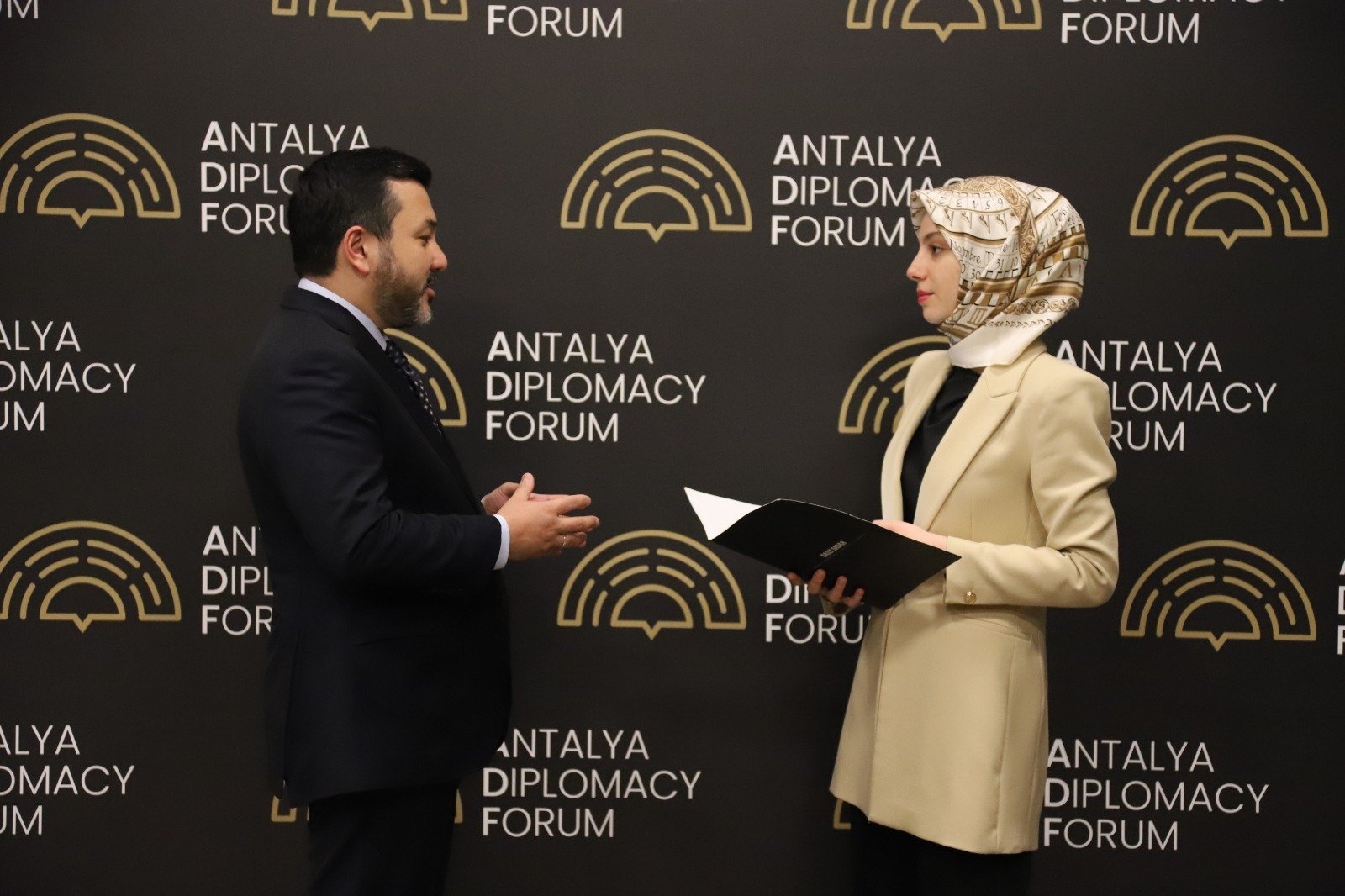© Turkuvaz Haberleşme ve Yayıncılık 2026
The rise of Islamophobia on a global scale, economic inequalities and ongoing conflicts are among the key challenges faced by Muslim youth today. Taha Ayhan, President of the Islamic Cooperation Youth Forum (ICYF), says these challenges deeply affect young people's sense of identity, social integration and prospects. In an exclusive interview with Daily Sabah on the sidelines of Antalya Diplomacy Forum, Ayhan detailed ICYF’s initiatives and strategies to support youth facing these issues.
Ayhan noted that systemic oppression and discrimination have had profound effects on Muslim youth, particularly those living in the West. These young people often face marginalization, exclusion and discrimination because of their identities. However, this situation is not limited to the West – similar challenges exist in Muslim-majority countries as well. “The fight against Islamophobia requires humanity to come together,” Ayhan said. “Yet today, we are witnessing the rise of nationalist rhetoric and the election of leaders who reinforce discriminatory tendencies.”
Economic inequality is another major issue affecting Muslim youth. “A large number of the world’s least developed countries are members of the Organisation of Islamic Cooperation (OIC),” Ayhan explained. “Countries like Pakistan and Bangladesh, which have large populations, are economically disadvantaged. This limits opportunities for young people in education and employment.”

Ongoing conflicts, internal displacement and natural disasters also impact youth significantly. “According to U.N. research, 85% of ongoing conflicts occur in OIC countries,” Ayhan said. “And it’s the youth who are the most affected. They’re directly impacted by crises, migration and forced displacement.”
Ayhan pointed to crisis zones like Palestine and Kashmir, noting that ICYF has dedicated efforts toward these areas. “We have a special initiative focused on Gaza. We’re fully supporting the ‘Gaza Tribunal’ project. We’ve also established a satellite channel called Witness Eye Channel, which documents crimes in Gaza 24/7 through testimonies of witnesses and victims. These materials will be submitted at the Gaza Tribunal in Sarajevo on May 26-27,” he said.
ICYF aims to raise awareness through clubs established at 817 universities across 72 countries. There are plans to expand these efforts within Türkiye as well. “Although direct aid to youth in Gaza is difficult, we engage with youth living in refugee camps through digital and on-the-ground initiatives. We’re working to help them reintegrate into life,” Ayhan noted.
Addressing the identity crisis experienced by Muslim youth in the West, Ayhan emphasized that these young people are at the center of Islamophobic campaigns. “Our diaspora youth have become the primary targets of such campaigns,” he said. “That’s why, through our anti-Islamophobia campaign, we aim to educate them on legal strategies and psychological resilience. Through clubs we’ve set up at universities, we’re bringing these young people together and building communities. We’ve made efforts in Brussels, London, Washington, New York, Baltimore and across universities and youth organizations in California.”
Ayhan added that ICYF is working on several projects to address youth challenges. “We had a major vocational training center project for the Sudan crisis, which we hope to revive. We’re also organizing training sessions for young people in Chad, Libya and the Sahel region,” he said.
Highlighting the urgency of international cooperation, ICYF President Taha Ayhan reiterated his commitment, “We are doing our utmost to ensure that Muslim youth preserve their identities while integrating into economic and social life.”
